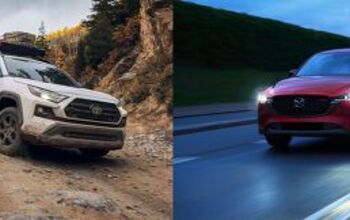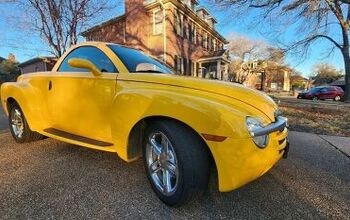Fiat Chrysler Seems to Have Cleared the Pacifica Hybrid Production Hurdle

Conflicting reports claim Fiat Chrysler Automobiles has either restarted, or is poised to restart, production of the Pacifica Hybrid minivan in Windsor, Ontario.
This comes after a tumultuous month for the automaker’s headline-grabbing plug-in minivan. First, a voluntary safety recall saw all Pacifica Hybrids built to date recalled for faulty inverter diodes, following incidents in which several vehicles lost power while underway. The recall then led to the shadowy shutdown of hybrid minivan production.
News of the shutdown irked dealers, some of whom expressed frustration to The Wall Street Journal. Some customers had been left waiting after the first deliveries arrived later than expected, and a prolonged production shutdown would only have led to more dissatisfied customers and more PR problems for FCA.
According to the Windsor Star, while hybrid models stopped appearing on the Pacifica production line several weeks ago, the plant’s union boss claims production might already have restarted. Dino Chiodo, president of Unifor Local 444, told the Star his belief was that hybrid production would resume this week following. Chiodo was unable to confirm this at the time of his call.
However, sources have told Automotive News that hybrids are indeed moving down the Windsor assembly line, having returned at some point last week. The break in Pacifica Hybrid production, the sources claim, was a matter of days, not weeks.
Regardless of whether the hybrids have returned, the shutdown proved a quiet affair. Only the recall officially made it out to the public. The Pacifica Hybrid, which carries a $13,000 price premium over a base model and serves as the company’s green flagship, is capable of 33 miles of all-electric range. Having a flagship dry-docked for emergency repairs doesn’t do a company’s image any favors.
[Image: Fiat Chrysler Automobiles]

More by Steph Willems
Latest Car Reviews
Read moreLatest Product Reviews
Read moreRecent Comments
- Slavuta Autonomous cars can be used by terrorists.
- W Conrad I'm not afraid of them, but they aren't needed for everyone or everywhere. Long haul and highway driving sure, but in the city, nope.
- Jalop1991 In a manner similar to PHEV being the correct answer, I declare RPVs to be the correct answer here.We're doing it with certain aircraft; why not with cars on the ground, using hardware and tools like Telsa's "FSD" or GM's "SuperCruise" as the base?Take the local Uber driver out of the car, and put him in a professional centralized environment from where he drives me around. The system and the individual car can have awareness as well as gates, but he's responsible for the driving.Put the tech into my car, and let me buy it as needed. I need someone else to drive me home; hit the button and voila, I've hired a driver for the moment. I don't want to drive 11 hours to my vacation spot; hire the remote pilot for that. When I get there, I have my car and he's still at his normal location, piloting cars for other people.The system would allow for driver rest period, like what's required for truckers, so I might end up with multiple people driving me to the coast. I don't care. And they don't have to be physically with me, therefore they can be way cheaper.Charge taxi-type per-mile rates. For long drives, offer per-trip rates. Offer subscriptions, including miles/hours. Whatever.(And for grins, dress the remote pilots all as Johnnie.)Start this out with big rigs. Take the trucker away from the long haul driving, and let him be there for emergencies and the short haul parts of the trip.And in a manner similar to PHEVs being discredited, I fully expect to be razzed for this brilliant idea (not unlike how Alan Kay wasn't recognized until many many years later for his Dynabook vision).
- B-BodyBuick84 Not afraid of AV's as I highly doubt they will ever be %100 viable for our roads. Stop-and-go downtown city or rush hour highway traffic? I can see that, but otherwise there's simply too many variables. Bad weather conditions, faded road lines or markings, reflective surfaces with glare, etc. There's also the issue of cultural norms. About a decade ago there was actually an online test called 'The Morality Machine' one could do online where you were in control of an AV and choose what action to take when a crash was inevitable. I think something like 2.5 million people across the world participated? For example, do you hit and most likely kill the elderly couple strolling across the crosswalk or crash the vehicle into a cement barrier and almost certainly cause the death of the vehicle occupants? What if it's a parent and child? In N. America 98% of people choose to hit the elderly couple and save themselves while in Asia, the exact opposite happened where 98% choose to hit the parent and child. Why? Cultural differences. Asia puts a lot of emphasis on respecting their elderly while N. America has a culture of 'save/ protect the children'. Are these AV's going to respect that culture? Is a VW Jetta or Buick Envision AV going to have different programming depending on whether it's sold in Canada or Taiwan? how's that going to effect legislation and legal battles when a crash inevitibly does happen? These are the true barriers to mass AV adoption, and in the 10 years since that test came out, there has been zero answers or progress on this matter. So no, I'm not afraid of AV's simply because with the exception of a few specific situations, most avenues are going to prove to be a dead-end for automakers.
- Mike Bradley Autonomous cars were developed in Silicon Valley. For new products there, the standard business plan is to put a barely-functioning product on the market right away and wait for the early-adopter customers to find the flaws. That's exactly what's happened. Detroit's plan is pretty much the opposite, but Detroit isn't developing this product. That's why dealers, for instance, haven't been trained in the cars.


































Comments
Join the conversation
So are they swapping out complete controllers, or are they able to just replace the diodes? I imagine they're pretty big.
Seems to me that stopping production and addressing a problem quickly is the right way to go about making cars. This article takes a pretty negative tone and seems to imply something larger is going on. Production of the van does seem to be quite delayed, but better to delay production than to make faulty products, no?